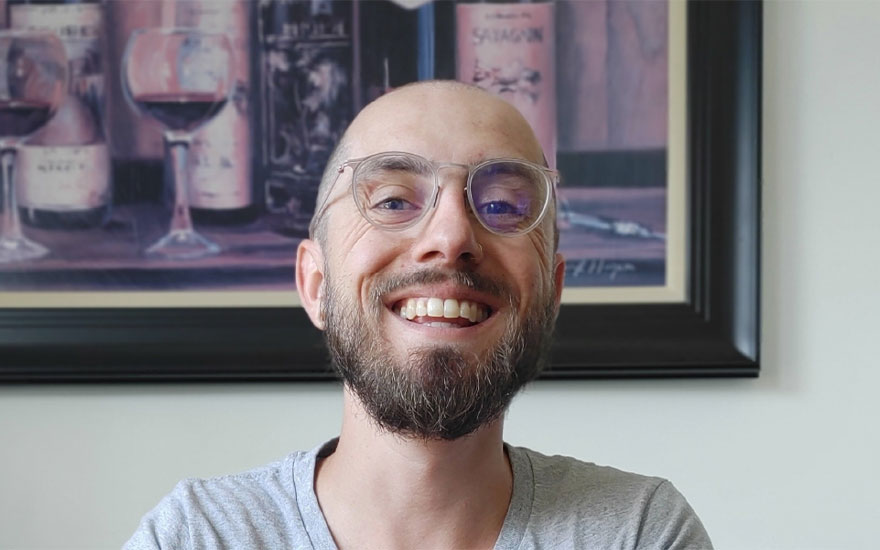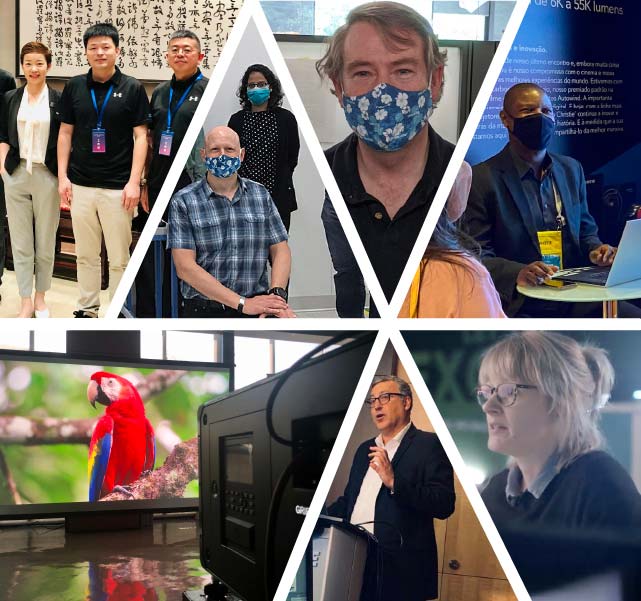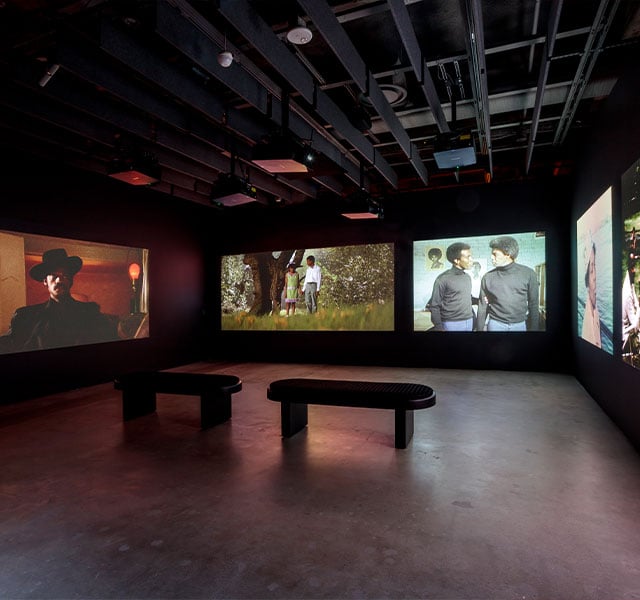A Q&A with Stephen Ahlgrim, CTS-D
You’re working in AV, but how do you keep advancing in your career?
A recent AVIXA webinar on career growth and development looks at just that: how to help rising talent in the AV industry answer the question, “What’s next?”. Through an interactive panel discussion, industry professionals Cristiano Mazza, CTS, Grupo Discabos, Tammy Fuqua, QSC, Brittney Antonelli, AVI Systems, and Christie’s own Danna Ferrarese, senior manager, global learning and development, shared how they advanced their careers and the resources they used to guide them.
AVIXA’s Rising Professionals Council continues the work of attracting and developing AV industry talent. Stephen Ahlgrim, the council’s co-chair, is passionate about this cause. And not just because he’s also an ICT (information and communication technology) Consultant with Syska Hennessy Group, the global engineering firm, but his role with AVIXA helps others find their way into the industry – and thrive.
Stephen’s work with the council includes advancing its mission to promote the skills, careers, and ongoing development of rising AV professionals, while acting as an ambassador of the AV industry through outreach and mentorship.
We had a chance to speak with Stephen about his work, how he got into the AV industry, and his advice to rising professionals.
Could you tell us a bit about yourself and your current role?
Stephen Ahlgrim (SA): Well, I’m Steve, and I am a Chicago-based ICT Consultant with Syska Hennessy. We’re an MEP-ICT (mechanical, electrical, and plumbing – information and communication technology) engineering firm. I focus on audiovisual systems and telecom infrastructure.
I guide client teams from deciding how they want their technology to function to a complete construction-ready set of documents that they can then get competitive bids on.
Every day, I work with our MEP engineers, architects, and owners to design the best systems possible. It’s a lot of coordinating, and strategic thinking, which I love, and Revit [Autodesk Revit is a building information modeling software tool]. Oh, so much Revit.
What made you decide to get into the AV industry?
SA: Did any of us decide to get into AV? I definitely fell into it. I’ve always loved music and science. I started playing guitar when I was 12 and really thought that was what I wanted to do. But, in college, I found an audio-acoustics program and it itched that math and science part of my brain while being creative-adjacent. I haven’t looked back since.
What, in your opinion, are the major challenges for people looking to get into the industry?
SA: There really isn’t a clear pipeline to bring new people into our industry. I “fell” into it the same way everyone else I’ve talked to has. AV folks are kind of misfits in that way. It certainly makes us unique, but I’ve really become interested in how we might be able to formalize a career path for our industry.
How does the Rising Professionals Council support rising AV professionals and those looking to enter the industry?
SA: AVIXA recently changed the name to “Rising” professionals, because that elevation of our careers is what we wanted to focus on. In the Rising Professionals Council, you get to meet people and make connections.
Unique to our council is that we all do different types of work. So we’re very diverse. We have career-focused conversations that are hard to come by at your workplace or in the outside world.
Just having a platform for people to ideate and think out loud goes a long way to letting people consider how they want to move forward in their lives and careers. I’m astonished at how much I learn just from these types of conversations.
Do you have any advice for a rising professional who is looking to advance their career?
SA: I’d say two things. First, take “stretch” assignments. Actively look for work or projects that are outside of your day-to-day skills – something you’re only 60-70% qualified for. It should challenge you. This is a great way to learn, and it’s a safe way to take risks that can pay off for you in the future.
Second, look for “strategic work.” Your company (I hope) has a direction. Maybe a new vertical they’re chasing, or a big client. Those are the teams that you want to be on, and it’s okay to ask to be on those teams. This way, when someone mentions your name at work, it’ll be in the context of work that your supervisors or higher-ups are excited about.
Is there anything you’ve planned for the council this year as co-chair?
SA: We have a lot going on. We’re having great conversations about mentorship and its relationship to job retention. In an era of “quiet-quitting” and “the great resignation,” people are asking how engaged they are in their jobs. We think we’re in a unique position to have that conversation.
We’re also planning roundtables to discuss NDAs, non-competes, and all of the legal-sounding stuff that can intimidate people new to our industry. It’s my first year as co-chair, and I also want to bring energy and excitement to something that I’ve long been passionate about, too.
What’s the best piece (or two) of career advice you’ve received?
SA: The best advice I got was that volunteering is a little selfish, and that’s okay. I’ve learned so much by helping others. I’ve been formally mentoring for the last few years, and sure, that fuzzy feeling is great, but you also gain from it. I’ve made important connections and learned from other mentors. Being known as a mentor and volunteer has given me access to people I wanted to talk to and established me as a leader. Just go volunteer. It’s rad.



